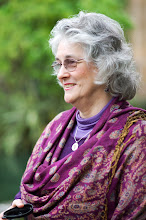“If you do not
intentionally include, you unintentionally exclude.”
~Neil Lenane
Last week I attended one of Marin Interfaith Council’s monthly clergy
meetings. I learn a lot at these
meetings, not so much about religio-spiritual stuff as much as about
organization, institutionalization, healthy and dysfunctional groups and how
some institutions work towards healing community. Also about lots of social justice issues – immigration,
capital punishment, war, teen suicide, LGBTQ concerns, domestic violence, et al.
MIC is mostly white folks, reflecting the demographic of our
locale. We solicit and welcome as
much diversity as our region has. Yet
we are aware of the limitations that our relative homogeneity might
present.
The foundation has come to
understand that diversity and inclusion
are about the experiences staff members have while they work here and how all of our actions influence the work
environment, from learning about and celebrating our differences to
addressing structural barriers that perpetuates inequalities. [Emphasis in original.]
Presenter Laura Eberly brought “a strength-based lens and
motivational interviewing technique to group and individual cultural competency
development.”
Laura provided an Inclusion Inventory for us to consider
when evaluating our own cultural literacy and attitudes. She took us through five stages of
evolution to help us understand some of our unconscious assumptions that tend
to separate us from others.
The first, Denial,
applies to missing the differences. Sometimes privileged people say to
themselves, “I don’t have to be concerned about ‘that’.” She also pointed out that “passing” is
a minimization. Perhaps some seek
to “pass” for reasons of safety; however, if they feel unsafe, we need to work
towards a society where instead of seeking safety by passing, everyone feels
safe and accepted, welcome and included.
The second, Polarization,
seeks to judge our differences. Polarization reinforces and affirms
stereotypes, even while acknowledging our diversity. It can put us in an oppositional stance, which is good for
no one.
Minimization de-emphasizes difference. In my view, this attitude makes our
world bland, colorless, lacking vibrancy and nuance. It’s also trivializing.
Reaching the level of Acceptance
means that we understand differences. This enriches our cultural competence. We’re not yet where we want to be, but
nearing that goal.
Finally, Adaptation
bridges difference. Bridging difference, finding
common ground, allows us to work together with trust and respect. Bridging brings the greater resources
of everyone included. Lessons,
customs, talents, ideas from everyone who wishes to contribute give us a
richness and pool of resources and ideas we wouldn’t otherwise have. Working together presents a stronger
force with which to resist oppression and foster positive change for everyone.
Certainly as Pagan and Witchen religious expression has
diversified, it behooves us to look towards how others address and resolve these
issues. I would like to see us
explore this subject in more depth within our own diverse and inclusive Pagan
communities.



